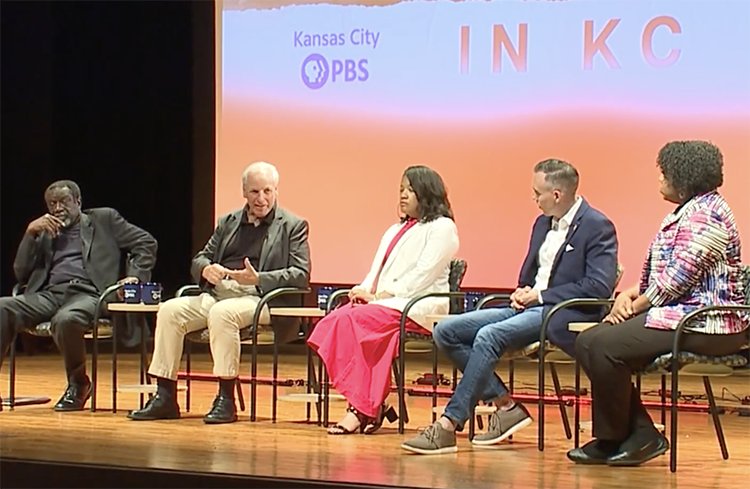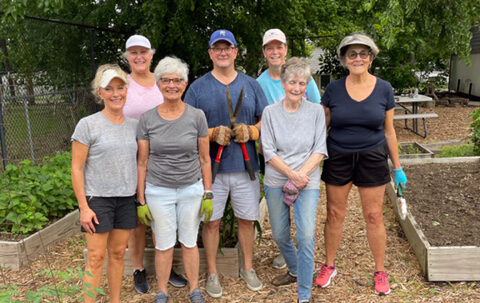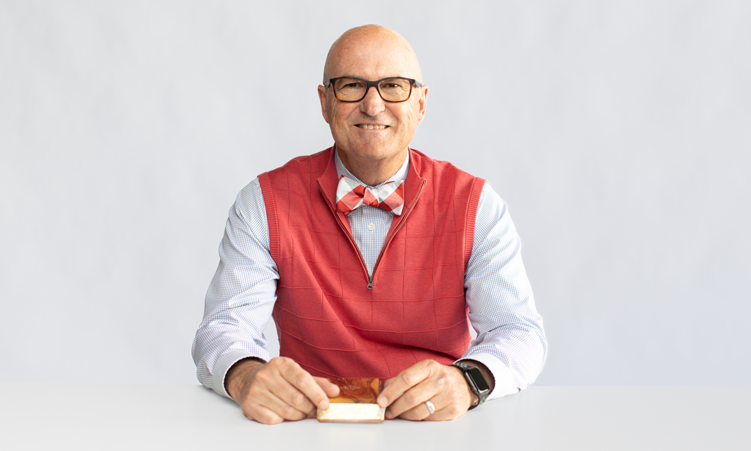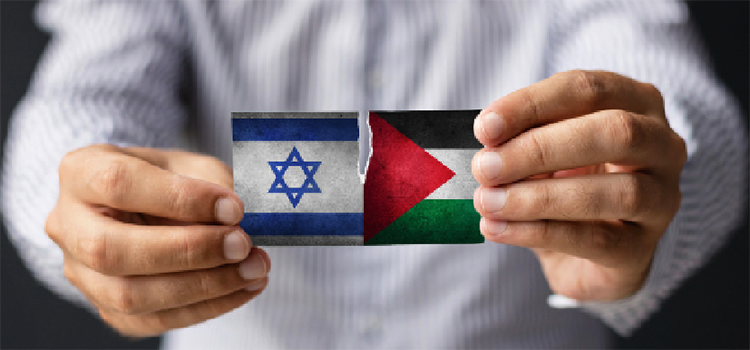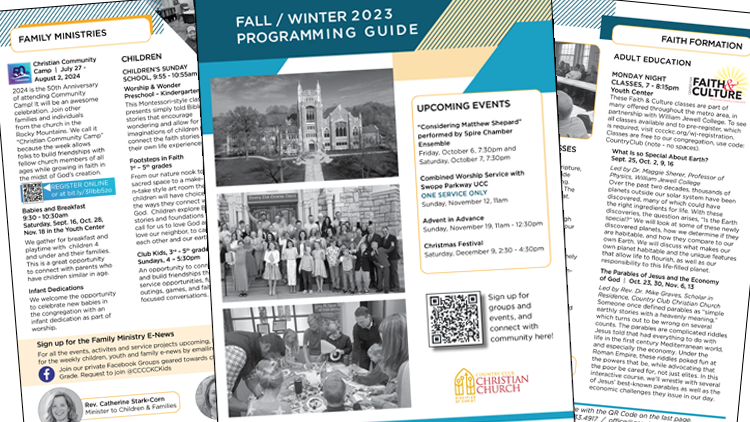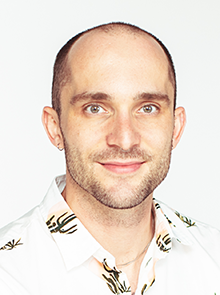 By Rev. Tyler Heston, Minister of Faith Formation for Country Club Christian Church
By Rev. Tyler Heston, Minister of Faith Formation for Country Club Christian Church
Redemption, atonement, healing, restoration: these are all terms you may hear in a book on theology. They’re also the kind of terms we heard talked about on Wednesday night. Some of us gathered under the banner of “Everyday Justice,” our congregational ministry that empowers ongoing opportunities to learn about what living justly looks like in our everyday lives, for an event called “Reparations in KC.” American Public Square, a local nonprofit committed to creating space for important conversations about the issues that usually divide us, hosted this panel at University Academy to invite various supporters— and critics— of the reparations movement in the USA.
Throughout the evening, we heard a dynamic conversation about the ways in which we might redeem, atone, heal, and restore our country from its history of oppression against Black folk. We all know in broad strokes the horrors of our country’s history, particularly the story of slavery and how oppression of Black folk has evolved since slavery ended, through segregation, Jim Crow laws, and ongoing systems of racism in our country. Many of us do not know what we can do to atone and repair this history, and that’s where this panel picked up the conversation.
Local leaders and thinkers, along with a former Councilwoman from Evanston, Illinois, which has recently launched a reparations program to offer financial reparations to Black folk in Evanston who have been directly harmed by racist governmental systems between 1919 and 1969, explored the questions and potentials about what reparations can look like. There are more questions than answers, but it was energizing to learn about what’s been done elsewhere and a bit about the our Kansas City Mayor’s Commission on Reparations and the work they have just begun to explore what a similar program might look like in Kansas City.
This conversation is complicated, and the panel proved that it can be difficult to get into the details as so many people enter the conversation from different contexts and perspectives. Social dynamics are complex, and they grow even more complicated when money gets brought into the mix. When we talk about Black folk and communities in America, we must remember the complex history of oppression in our country and that “there is nothing wrong with Black people except that they are oppressed,” as panelist Mickey Dean stated on Wednesday night. We must also remember that overcoming oppression is good for everyone, not just those directly oppressed. “Nobody’s free until everybody’s free,” as Fannie Lou Hamer said. Robin Rue Simmons, the Councilwoman from Evanston, shared about how the reparations effort in her city has benefited everybody. Across Chicagoland, studies have proven that government efforts to address segregation and racism have led to an increased GDP in the city. “Repairing the Black community will repair Kansas City,” she said.
What does this mean for us? I sat there, listening to the conversation, wondering how I could be a part of reparations. Those of us who gathered from the church met afterwards to debrief and wondered this, too. Perhaps you are reading this (or will watch the livestream of Wednesday’s conversation) and wonder the same. After I got home, I took some time to learn more about the facts and figures relevant to this conversation through the Fact Sheet that APS provided, and I realized that though this is a complicated issue with which our entire country is struggling, there are particular ways in which we are connected here in Kansas City. Their facts, along with things I’ve learned through the Dividing Lines: History of Segregation in Kansas City material put together by the Johnson County library, helps me understand how where I live and where we gather as a church is directly connected to the practices and policies that have created our still-segregated city. I see it when I see the change in neighborhoods as I drive down Meyer from the Paseo to Ward Parkway, like I did this week after lunch with a friend.
It’s heavy, our complicated history and the questions of how we might overcome it. But in the heaviness is hope. The more we learn about the past and question what we might do in the future, the more we will find opportunities to do something with the heaviness and find out how we can work towards atonement, healing, and reparation. The past does not have to predict the future; God joins with us in every moment to invite us into change, healing, and growth. While we will never fix all of the issues of the past in one fell swoop, we can work— and, through conversations like the one we had Wednesday night, we already are working— towards a future of reparation and wholeness one step at a time.

